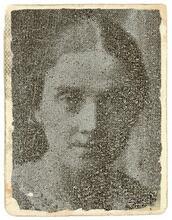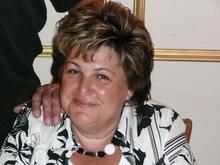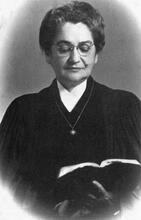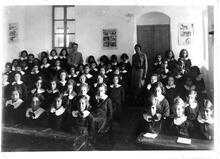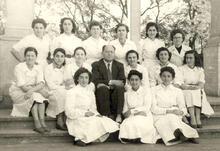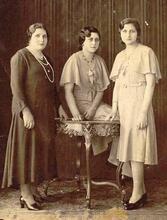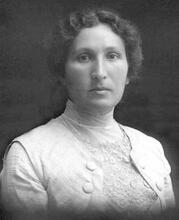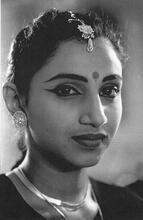Frances Krasnow
Frances Krasnow helped bring scientific rigor to dental medicine through her research into oral biochemistry and microorganisms. Krasnow was a fellow of the Rhein-Levy Research Fund, taught at Columbia University, then became head of fundamental science at the Guggenheim Dental Clinic’s School for Dental Hygiene. She was promoted to director of research for the clinic, soon becoming research director for Universal Coatings, Inc., a position she held until her retirement. Krasnow’s work on oral chemistry helped drive research in dentistry, which had previously been a poorly regarded discipline. She also remained involved in Jewish education by promoting Hebrew and Jewish literature as subjects to be taught in mainstream American high schools, for which she received an honorary doctorate from the Jewish Theological Seminary.
Article
In 1917, Frances Krasnow graduated from Barnard College with a bachelor of science cum laude, from Columbia University with a master’s degree, and from the Teachers Institute of the Jewish Theological Seminary. Krasnow would eventually receive recognition for being a pioneer in both science and Jewish education.
She was born in New York City on October 16, 1894, to Raphael and Sara Rifka (Lubarsky) Krasnow. After receiving her master’s degree, she continued in Columbia’s doctoral program and obtained her Ph.D. in bacteriology, chemistry, and biochemistry in 1922. From 1922 to 1928, she was a fellow of the Rhein-Levy Research Fund. Until 1932, she was an instructor at Columbia’s College of Physicians and Surgeons.
On December 25, 1930, she married Marcus Thau, an industrial research chemist. They had a daughter named Hudelle, born in 1933.
From 1932 to 1944, Krasnow was assistant director and head of fundamental science at the School for Dental Hygiene at the Guggenheim Dental Clinic. From 1934 to 1960, she was active in the New York chapter of the International Association of Dental Research, acting at various times as president, vice president, and editor of the organization. In 1944, she was appointed director of research at the Guggenheim Clinic, a position she would hold until 1952. From 1952 to 1974, she was research director at Universal Coatings, Inc., a firm based in New Jersey. In 1973, the American Chemical Society bestowed a citation on Krasnow for fifty years of active membership and forty-three years of participation in its Chemical Abstracts.
Much of Krasnow’s work concerned the chemistry of dental conditions: the effect of diet on teeth, root canal bacteriology, and the chemistry of saliva. She also examined cholesterol and blood chemistry in syphilis and skin diseases, agglutinins, and the correlation between metabolic inorganic and organic levels in blood, saliva and urine.
Krasnow was also a leader in the field of Jewish education. She was instrumental in promoting Hebrew language and literature as subjects of study in American high schools and colleges. In 1969, she became a member of the board of overseers for the Jewish Theological Seminary. She was also involved with many American Jewish organizations. In 1974, the Jewish Theological Seminary honored her with the degree of Doctor of Letters in recognition of her lifelong activity on behalf of Jewish education and her endeavors in biochemical research.
According to a 1941 article in Science magazine, dental research in the early part of the twentieth century was a relatively undeveloped field, hampered by infighting and lack of academic rigor. Krasnow, with her strong biochemistry background, helped to bring scientific discipline to the field. She also made contributions to biochemistry in medicine.
She studied Jewish education during a time of its reinvigoration—the years around World War I. In particular, the Jewish Theological Seminary and Columbia University Teachers College were centers for exploring new ways to promote Judaism to assimilating Jews. Krasnow’s early experiences formed the basis for her lifelong interest in Judaism and her advocacy of Hebrew language and literature.
Frances Krasnow died on October 5, 1983, in New York City.
American Chemical Society. Chemical Abstracts (1930–1973). Edited by Frances Krasnow.
American Men and Women of Science (1992).
Barnard College Alumni Office. Interview with author, June 1996.
Cohen, Harry, and Itzhak J. Carmin, eds. Jews in the World of Science (1956).
Krasnow, Frances. Commencement Program (1974). Jewish Theological Seminary, NYC.
Hones, Durwood, ed. American Women: 1935–1940: A Composite Biographical Dictionary (1981).
Moore, Deborah Dash. At Home in America: Second-Generation New York Jews (1981).
Rosenburg, Theodore. “Biological Research After a Century of Dentistry.” Science 92 (1940): 247.
WWIAJ (1938, 1980).
World Who’s Who in Science from Antiquity to Present (1968).

